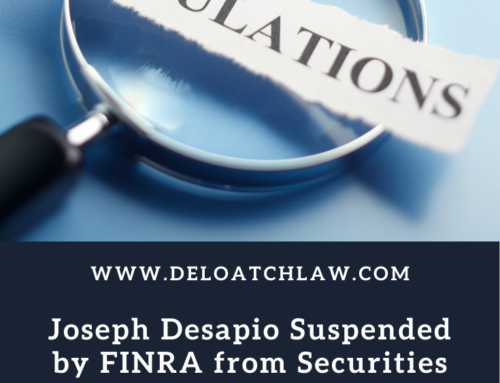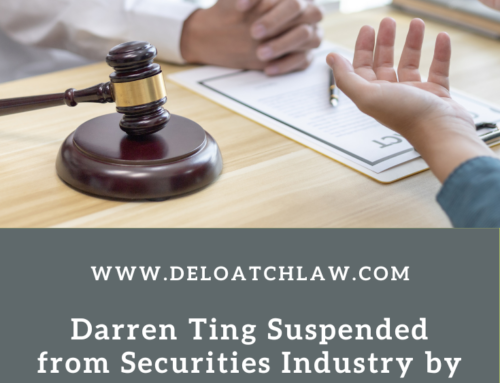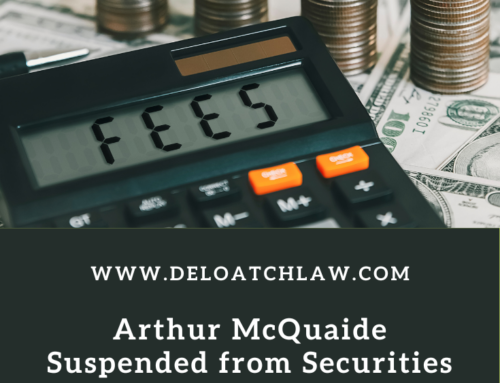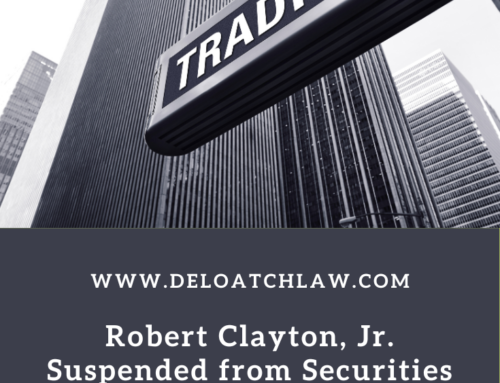 Have you lost money in a “hot new investment with great returns” recommended by your broker just to later find out it wasn’t even a product that was offered by your broker’s firm? If you have, this is known as selling away and you may have recourse. Have you lost money from your broker engaging in selling away?
Have you lost money in a “hot new investment with great returns” recommended by your broker just to later find out it wasn’t even a product that was offered by your broker’s firm? If you have, this is known as selling away and you may have recourse. Have you lost money from your broker engaging in selling away?
What is Selling Away?
Selling away occurs when a financial professional who is registered with one firm recommends a securities transaction to occur at a firm away from which they’re registered and without authorization from their registered firm. Selling away is a sales-practice violation prohibited by FINRA Rule 3280. Specifically, FINRA Rule 3280(a) states, in relevant part:
No person associated with a member shall participate in any manner in a private securities transaction except in accordance with the requirements of this Rule.
Whereas, FINRA Rule 3280(b) states, in relevant part:
Prior to participating in any private securities transaction, an associated person shall provide written notice to the member with which he is associated describing in detail the proposed transaction and the person’s proposed role therein and stating whether he has received or may receive selling compensation in connection with the transaction…
Moreover, the rule defines a private securities transaction, in relevant part, as:
“Private securities transaction” shall mean any securities transaction outside the regular course or scope of an associated person’s employment with a member, including, though not limited to, new offerings of securities which are not registered with the Commission…
Recently FINRA has seen an increase in brokers/advisors engaging in selling away. The reasons for this are myriad. However, a significant reason for this is the amount of money the broker stands to make from commissions. Yes, plain old-fashioned greed.
In addition to this obvious conflict of interest, selling away can conceal other illegal activities, such as Ponzi schemes.
Broker and Brokerage Firm Liability For Selling Away
 If you’ve lost money from such a transaction, you may be asking yourself “whose responsible, me, the broker or the brokerage firm?” Under the most common scenarios both the broker and the brokerage firm are usually liable for your losses.
If you’ve lost money from such a transaction, you may be asking yourself “whose responsible, me, the broker or the brokerage firm?” Under the most common scenarios both the broker and the brokerage firm are usually liable for your losses.
Quite often when brokers engage in selling away, they lead the client to believe, through misrepresentation, the investment is a security they are authorized to recommend. This misrepresentation places the transaction in the realm of fraud, thus subjecting the broker and broker-dealer to liability.
Additionally, selling away often involves private placement offerings of various types of securities including real estate (REIT’s and TIC’s) and promissory notes. Private placement securities tend to carry a greater level of risk than publicly traded securities. If the investment is inconsistent with your investment objectives and risk tolerance, the broker and brokerage firm can be held liable for an unsuitable recommendation.
With regards to the brokerage firm specifically, broker-dealers have an obligation to enact adequate supervisory procedures to supervise their brokers/advisors. Logic dictates that it’s not enough for the firm to simply have the procedures, they also have an obligation to actually enforce those procedures. Thus, when broker-dealers don’t have adequate supervisory procedures or don’t enforce their supervisory procedures, they are usually found liable for failing to supervise when a client sustains losses from selling away.
So, have YOU lost money from your broker engaging in selling away?
What Should You Do?
If you are unsure about a recommendation your broker is making or has made, don’t be afraid to ask questions. Ask the broker/advisor if the security is offered/authorized by the firm. If you’re still unsure, you can speak with the branch manager regarding the investment.
You can ask the question via email to ensure that you have an adequate record of the conversation. However, if you ask in either a face-to-face meeting or over the phone, make and keep notes of your conversations. Your notes should reflect who you spoke with, the date and time of the conversation and what was discussed. You may need these notes as evidence in any future arbitration/litigation.
Additionally, it is always a good idea to review any and all paperwork given to you by your broker regarding the investment. This will give you a good idea if it is offered by the firm your broker is registered with.
If you believe you have lost money from your broker engaging in selling away, your next step should be to seek the advice of an experienced legal professional.
The Law Office of Kevin J. Deloatch, Esq. has an extensive securities law practice and over 30 years of experience on Wall Street. If you would like a free consultation, call today at (646) 792-2156. If there is a basis for filing a claim your time may be limited. Call today to avoid delay.








